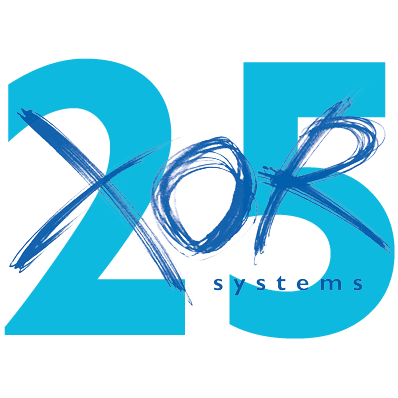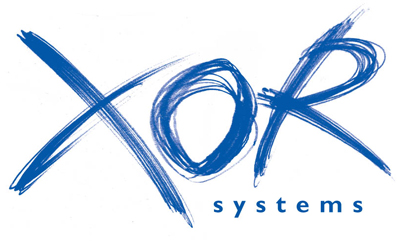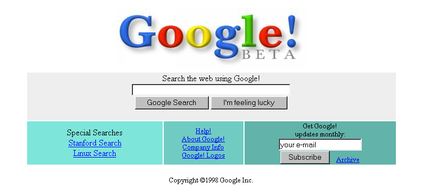25 Years at Xor Systems 31-05-2023

To celebrate the 25th anniversary of Xor systems as of the publishing of this article, we decided to look back at the history of technology over cour company's lifespan. In this article, we will focus on the major events in the world of technology since the year of our founding 1998.
To commemorate the 25th anniversary of Xor Systems, this article takes a look back at the major events that have shaped the technology industry since its founding year of 1998. Over the past 25 years, technology has undergone significant changes, and this article highlights some of the most groundbreaking developments. Starting in 1998, when Google was founded, the article covers the first wireless internet connection, Microsoft's launch of Windows 2000, the introduction of Bluetooth technology, the birth of social media platforms like Facebook and video-sharing sites like YouTube, Amazon's Kindle, and Apple's iPhone. The innovations and advancements in technology have significantly impacted and transformed how people communicate, work, and consume media, forever changing the technological landscape.
1998: Google was founded by Larry Page and Sergey Brin, two PhD students at Stanford University. The company initially operated out of a garage in California and quickly became known for its powerful search engine that ranked results based on relevance and popularity. The company's innovative technology and user-friendly interface made it a popular choice among internet users, and within a few years, Google became the go-to search engine for millions of people worldwide. Today, Google is one of the largest and most valuable companies in the world, offering a wide range of services including search, email, cloud storage, advertising, and more.
1999: The first successful wireless internet connection was established, marking a major milestone in the history of technology. This breakthrough was made possible by the development of the IEEE 802.11 standard, commonly known as Wi-Fi, which enabled data to be transmitted wirelessly between devices over short distances. The successful implementation of wireless internet technology had a profound impact on the way people live and work, as it provided unprecedented levels of mobility and convenience, allowing users to access information and communicate virtually anywhere. Today, the wireless internet has become an integral part of modern life, powering everything from smartphones and laptops to home automation systems and smart cars.
2000: Microsoft launched its new operating system, Windows 2000, which quickly became one of the most successful and widely used operating systems in history. Windows 2000 was designed for business and professional users, offering enhanced security, stability, and performance compared to its predecessor, Windows NT. It also introduced a range of new features, such as improved networking capabilities, Active Directory services, and support for Plug and Play devices. Overall, Windows 2000 set a new standard for operating systems, paving the way for future Microsoft releases like Windows XP and Windows 10.
2001: Apple launched the first-ever iPod, a portable digital media player that allowed users to store and play music files on the go. The device's sleek design, user-friendly interface, and massive storage capacity (up to 5GB) quickly made it a game-changer in the world of digital music. The iPod also paved the way for the iTunes Store, where users could legally purchase and download digital music files directly onto their devices. With the iPod's success, Apple transformed the music industry, forever changing the way people listen to and consume music.
2002: Bluetooth technology was introduced, providing a wireless communication solution that allowed devices to connect and communicate with each other without the need for cables or wires. This technology quickly gained popularity and became widely adopted, allowing for seamless communication between devices such as phones, laptops, and other electronic devices. Bluetooth technology enabled a new era of convenience and portability, making it easier for people to connect and share information in a wireless, hassle-free manner.
2003: The first BlackBerry smartphone was launched, revolutionizing the way people communicate. With its iconic full QWERTY keyboard, email integration, and secure messaging capabilities, the BlackBerry became a staple for business professionals and busy individuals who needed to stay connected on the go. The device allowed users to send and receive emails, browse the internet, and access a variety of productivity apps, making it a game-changer in the world of mobile technology. Its success paved the way for future advancements in smartphones and laid the foundation for the modern-day mobile revolution.
2004: Mark Zuckerberg founded Facebook, a social media platform that quickly gained popularity and became one of the largest social networking sites in the world. Facebook's user base grew rapidly, surpassing one billion active users by 2012. With its easy-to-use interface, ability to connect with friends and family, and a range of features including messaging, groups, events, and pages, Facebook has become an integral part of modern communication and social interaction. It has also been a platform for businesses to reach and engage with their customers, making it a valuable tool for marketing and advertising.
2005: YouTube was founded as a video-sharing platform that allowed users to upload, share and view video content. The website quickly became popular, and it was acquired by Google in 2006. YouTube's user-generated content model enabled people to create and distribute their videos, leading to the rise of vlogging, DIY tutorials, and other forms of online video content. Over time, YouTube has evolved to include features like live streaming, monetization for creators, and a vast library of videos covering a wide range of topics. Today, it is one of the most popular websites in the world, with billions of hours of video watched every day.
2006: Amazon introduced its first Kindle device, a portable e-book reader that allowed users to download and read books electronically. The Kindle's introduction marked a significant shift in the publishing industry, as it provided an alternative to traditional print books and opened up new opportunities for self-publishing. The device's convenience and ease of use made it popular among readers, and it paved the way for the widespread adoption of e-books as a viable alternative to print books. Today, the Kindle has evolved into a family of devices and apps, offering readers access to millions of titles from anywhere in the world.
2007: Apple released the first iPhone, which revolutionized the way people use smartphones. The iPhone's sleek design and user-friendly interface set a new standard for mobile devices, making them more accessible and intuitive. The introduction of the App Store in 2008 also allowed for the creation of a vast ecosystem of third-party applications, further enhancing the capabilities of the iPhone. With features such as touchscreens, high-quality cameras, and internet connectivity, the iPhone has become a ubiquitous and essential tool for communication, entertainment, and productivity. Its influence on the tech industry and society as a whole cannot be overstated.
2008: The Android operating system was released as an alternative to Apple's iOS. Developed by Google, Android quickly gained popularity among smartphone manufacturers due to its open-source nature, allowing for greater customization and flexibility. This competition with iOS fueled rapid development and innovation in the smartphone market, leading to the creation of new features and improved user experiences. Today, Android is the most widely used mobile operating system globally, powering a vast array of devices from smartphones and tablets to smartwatches and televisions.
2009: An anonymous person or group using the pseudonym Satoshi Nakamoto created Bitcoin, which is considered to be the first decentralized cryptocurrency. Bitcoin is a digital currency that is not controlled by any government or financial institution and operates on a decentralized system known as a blockchain. Transactions are verified and recorded by a network of computers around the world, making them highly secure and transparent. Bitcoin's creation revolutionized the way people think about money and has led to the development of numerous other cryptocurrencies.
2010: Apple Inc. launched the first iPad, a revolutionary tablet device that changed the way people interacted with technology. The iPad was designed as a versatile device that could perform a range of functions, from browsing the internet and sending emails to playing games and reading books. Its sleek design, high-resolution display, and intuitive touch interface quickly made it a popular device for both personal and professional use. The iPad's success also spurred the development of other tablet devices, leading to a shift in the way people consume media and access information.
2011: In 2011, Amazon released the first version of their smart speaker, the Amazon Echo. This device was the first of its kind to feature a voice-activated virtual assistant called Alexa, which allowed users to control various aspects of their home automation system with simple voice commands. The Echo's release marked a major milestone in the development of the Internet of Things (IoT) and smart home technology and paved the way for future innovations in voice-activated devices and home automation systems.
2012: Oculus VR was founded, which became a pioneer in the field of virtual reality technology. With its innovative head-mounted display (HMD) technology, Oculus VR brought immersive and realistic virtual reality experiences to users. Oculus VR continued to innovate and improve its technology, leading to the development of the Oculus Rift, a high-end virtual reality headset for gaming and other applications. The company was later acquired by Facebook, further boosting its resources and expanding its reach in the virtual reality market.
2013: The first smartwatch, the Pebble, was released, revolutionizing the way people interact with their wristwear. Unlike traditional watches, the Pebble was capable of displaying notifications, tracking fitness, and controlling music playback, among other features. It was compatible with both Android and iOS devices, making it accessible to a wide range of users. The Pebble was praised for its long battery life and customizable watch faces, which allowed users to personalize their devices. Its success paved the way for other smartwatches, such as the Apple Watch and Samsung Galaxy Watch, to enter the market and become increasingly popular.
2014: Tesla made history by introducing the Model S, which was the first fully electric vehicle to have a range of over 200 miles. This achievement marked a significant milestone in the development of electric vehicles and helped to dispel the common perception that electric vehicles had limited range and were only suitable for short trips. With the Model S, Tesla demonstrated that electric vehicles could be both practical and desirable, offering a sustainable and efficient alternative to traditional gasoline-powered cars. The success of the Model S paved the way for further innovation in the electric vehicle industry and has helped to accelerate the adoption of electric vehicles worldwide.
2015: Several countries introduced regulations to address the increasing popularity of consumer quadcopter drones. In the United States, the Federal Aviation Administration (FAA) implemented a requirement for drone operators to register their aircraft and pay a $5 registration fee. This move aimed to improve safety and accountability among drone users and reduce the risk of accidents or incidents involving drones. The regulations also helped to ensure that drone operators were aware of their responsibilities and the potential risks associated with operating unmanned aircraft systems in public airspace.
2016: Virtual reality technology made a significant leap forward with the release of two major head-mounted displays: the Oculus Rift and HTC Vive. These devices marked a major milestone in the mainstream adoption of virtual reality, allowing users to experience immersive, three-dimensional environments in a way that was previously only possible in science fiction. The Oculus Rift and HTC Vive both offered high-quality graphics and intuitive controls, making them popular among gamers and other enthusiasts. The release of these devices helped pave the way for the continued growth and development of virtual reality technology in the years to come.
2017: The use of artificial intelligence (AI) and machine learning (ML) began to significantly impact the tech industry. This was due to the increased availability of data and improvements in computing power. Companies such as Google, Facebook, and Amazon invested heavily in AI and ML to improve their products and services, including search algorithms, virtual assistants, and personalized recommendations. Additionally, industries such as healthcare, finance, and transportation started to adopt AI and ML to optimize their operations and enhance decision-making. This trend has continued to accelerate, with AI and ML becoming essential tools for many businesses across various sectors.
2018: The first 5G networks were introduced, representing the fifth generation of wireless technology. This new network offers faster and more reliable wireless connections compared to previous generations, enabling high-speed data transfer and lower latency. 5G technology has the potential to revolutionize industries such as healthcare, transportation, and entertainment by providing faster and more efficient communication between devices. As 5G technology continues to evolve and expand, it is expected to have a significant impact on the way people interact with technology and each other.
2019: Samsung introduced the concept of a foldable smartphone with the release of the Samsung Galaxy Fold. This innovative device featured a flexible display that allowed it to be folded in half, creating a more compact form factor. The Galaxy Fold's unique design generated a lot of excitement in the tech industry, as it represented a major step forward in the development of mobile devices. However, the release of the Galaxy Fold was not without issues, as early models suffered from hardware problems that resulted in delays and a recall of some units. Despite these challenges, the introduction of the foldable smartphone represented an important milestone in the evolution of mobile technology.
2020: The COVID-19 pandemic led to a significant shift in the way people work, as remote work became the norm in many parts of the world. This shift resulted in a surge in the use of videoconferencing and online collaboration tools, which enabled teams to communicate and work together despite physical distance. Platforms like Zoom, Microsoft Teams, and Google Meet became household names, and businesses of all sizes adopted these tools to maintain productivity and continuity. The widespread adoption of remote work and online collaboration is likely to have a lasting impact on the way we work in the future, even beyond the pandemic.
2021: The COVID-19 pandemic accelerates the adoption of telehealth services, enabling remote medical consultations and monitoring. This trend is further facilitated by the development of wearable health monitoring devices and the integration of artificial intelligence in medical diagnostics.
2022: Quantum computing makes significant advances, with companies like IBM and Google achieving quantum supremacy and developing practical applications for quantum technology. This breakthrough could have far-reaching implications for fields such as cryptography, drug discovery, and financial modelling.










.svg.png)












.jpg)